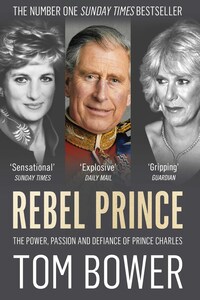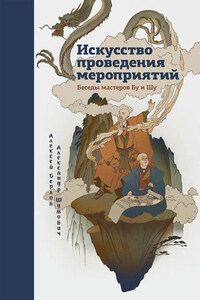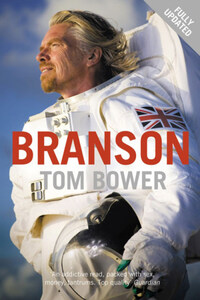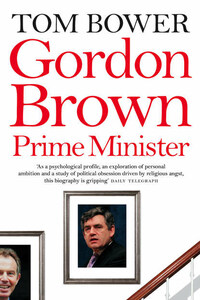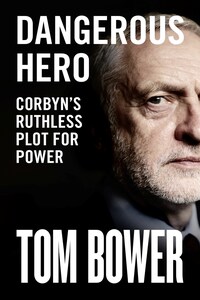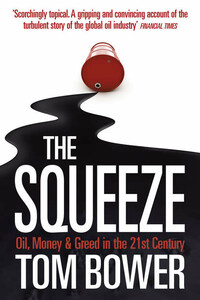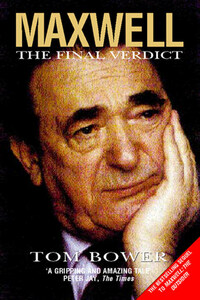William Collins
An imprint of HarperCollinsPublishers
1 London Bridge Street
London SE1 9GF
WilliamCollinsBooks.com
This eBook first published in Great Britain by William Collins in 2018
Copyright © Tom Bower 2018
The author asserts the moral right to be identified as the author of this work
A catalogue record for this book is available from the British Library
Cover images © Getty Images
All rights reserved under International and Pan-American Copyright Conventions. By payment of the required fees, you have been granted the non-exclusive, non-transferable right to access and read the text of this e-book on screen. No part of this text may be reproduced, transmitted, down-loaded, decompiled, reverse engineered, or stored in or introduced into any information storage and retrieval system, in any form or by any means, whether electronic or mechanical, now known or hereinafter invented, without the express written permission of HarperCollins.
Source ISBN: 9780008291730
Ebook Edition © March 2018 ISBN: 9780008291778
Version: 2018-09-21
This book is the story of Prince Charles’s battle for rehabilitation after Diana’s death, and his refusal to obey the public’s expectations of a future king. Many books have been written about Charles, but none has fully described the crisis he faced after 1997. For nearly ten years, he was buffeted by scandal. His approval rating fell to the lowest figure for any royal in recent times. His succession to the throne was endangered.
Among the most serious disclosures to undermine public confidence in the prince were those exposed during the unsuccessful prosecution for theft in 2002 of Paul Burrell, Diana’s butler and confidant; the simultaneous revelation of disreputable behaviour within Charles’s household; and the possibility that he had personally interfered in the judicial process. At the end of that two-year drama, Charles’s survival as heir to the throne was on a knife-edge.
Additionally, throughout those years he was repeatedly criticised by the media and politicians for his extravagances. His father denounced him for being a rent-a-royal, yet he continued to sell access to himself – to raise money for his many charities and to indulge in ostentatious luxury. At the same time he provoked a fractious relationship with Tony Blair in his years as prime minister which undermined the prince’s constitutional duty to stay impartial. And he blithely disregarded the disdain of many Commonwealth leaders, which wrecked his assumption that he would automatically inherit leadership of the association of fifty-two countries.
During this period of turmoil, one issue dominated Charles’s life – the status of Camilla Parker Bowles. Ever since they had resumed their relationship in the mid-1980s, he had stubbornly fought to rescue their reputations. Single-mindedly he confronted all the Establishment forces, including the queen, who was determined to prevent their marriage. His principal ally was Mark Bolland, a young media consultant, who for the first time has revealed in this book the intrigues that he masterminded on behalf of Charles and Camilla, which climaxed in their wedding in April 2005. Thereafter, the scandals in Charles’s life diminished, although it would take another six years before the departure of his five most senior advisers signalled the end of the turbulence.
By November 2011, Charles’s reputation as a rebel was truly established. Not only had he defied the nation to marry Camilla, but his championship of controversial causes including the environment, architecture, fox-hunting, complementary medicine and education, had aroused fierce opposition – and also praise. ‘I have never known a man who had better motives for all the trouble he caused,’ comments Thomas Fowler about the eponymous ‘Quiet American’ in Graham Greene’s novel; the same could be said about Charles. Few doubted the sincerity of his campaigns, but many feared that his provocative dissent made him unfit to be king.
He has repeatedly mentioned his devotion to his duty. He believes passionately that he can make Britain a better country and that he can help the disadvantaged. Whatever criticisms may be levelled at him have been mitigated, especially by his admirers, by his commitment to many valuable causes. Many Britons have personal experience of his dedicated visits to schools, hospitals and hospices. Carefully briefed, he talks engagingly to staff, pupils and patients, leaving them all with an enduring memory of his decency.
